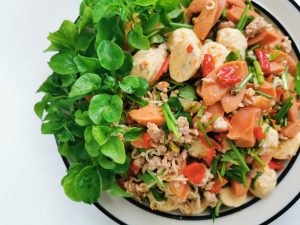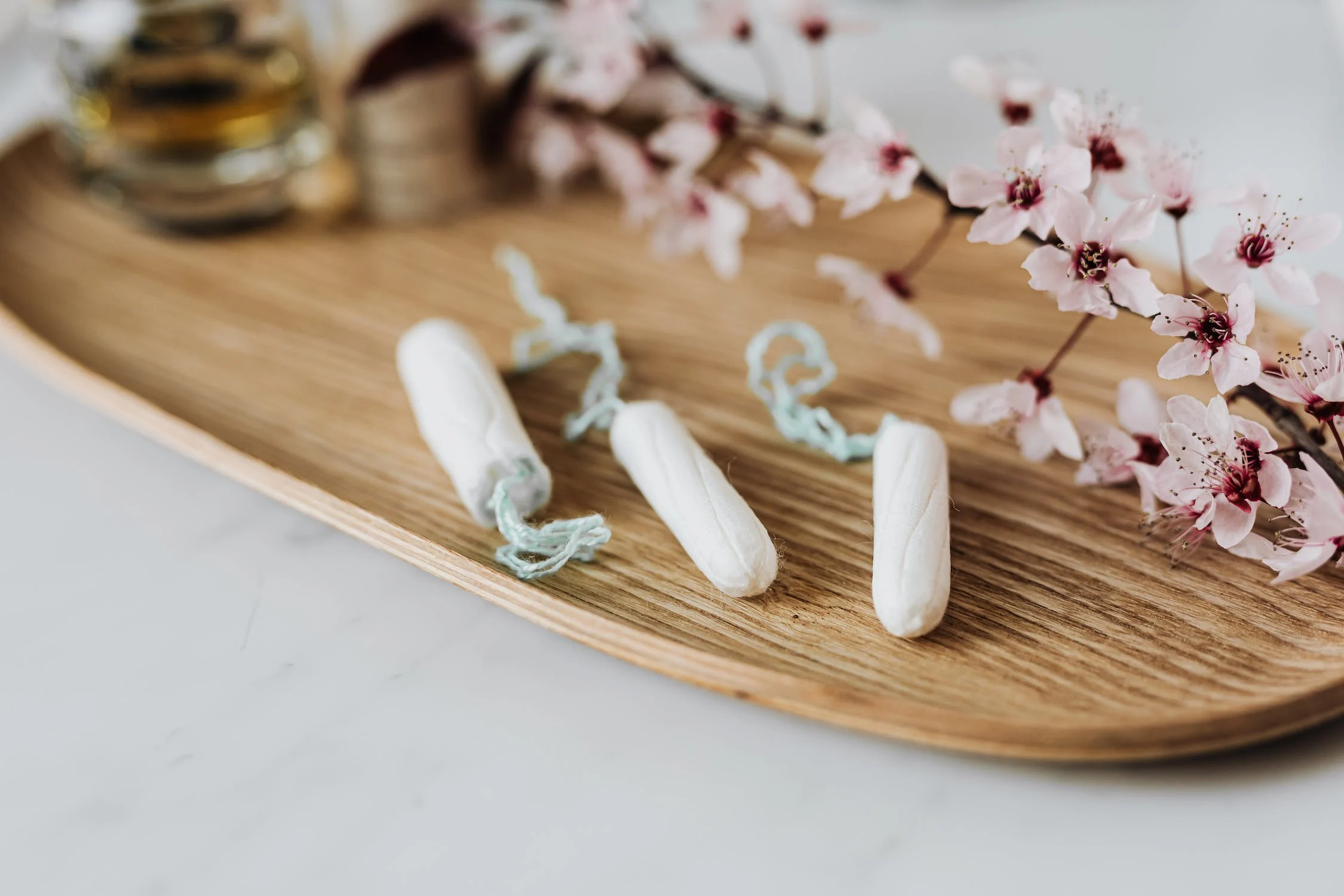
Premenstrual syndrome (PMS) aka, those shitty days that lead you into your period can bring about a unique range of symptoms affecting not just your body, but your mind. There is no one-size-fits-all solution, however, we can incorporate nutrients into your diet that science has proven to be beneficial. So let’s explore those key nutrients that can help you navigate the ups and downs of your cycle.
- Marvelous Magnesium
When you hear magnesium, think “calm, I’m at a day spa getting pampered all day” vibes… but for your insides. Magnesium will help calm the nervous system and reduce muscle tension. If you experience painful cramps, mood swings, anxiety, irritability then Mag is your BFF. It will help relax the uterus (a giant muscle that contracts to help cause your period) as well as promoting healthy progesterone production in the second half of the cycle. This leads to a better balance between your two female hormones; oestrogen and progesterone, leading to a smoother transition into bleeding.
Foods containing magnesium: dark leafy greens, nuts, seeds, whole grains, and legumes.
An ideal magnesium boosting meal:
Cooked whole grain rolled oats, topped with a TBS of chia seeds, TBS of pumpkin seeds, a TBS cacao powder, sprinkled with some maple syrup and topped with a dollop of greek yoghurt and berries.
- Easing omega’s
What don’t omega 3 fatty acids do, really. They are potent anti-inflammatories that can significantly help the physical discomfort of PMS. Those pesky cramps are not only caused by your uterus muscle, but by inflammatory chemicals called prostaglandins. Omega 3s can help downregulate their effects and ease the pain. On top of all of that, they will aid your GI tract and help with bloating and abdominal discomfort.
Foods containing omega 3s: oily fish like salmon, mackerel, and sardines, extra virgin olive oil, flaxseeds, chia seeds, walnuts, and hemp seeds.
An ideal omega 3 easing meal:
2C of dark leafy greens, 1 fillet of salmon, avocado, 1TBS hemp seeds, carrot, cucumber, tomato, sweet potato topped with a small drizzle of olive oil, lemon, salt and pepper.

- Beautiful B Vitamins
B vitamins, particularly B6 and B12, play a vital role in mood regulation and energy production. Vitamin B6, in particular, has been linked to reducing PMS symptoms like mood swings and irritability. B6 will also help your progesterone production, once again, aiming to achieve an optimal balance between your reproductive hormones. When supplementing B6, look for “P5P/PLP.”
Foods containing B vitamins: whole grains, lean meats, poultry, fish, eggs, and leafy greens.
An ideal B vitamin Boosting meal: A glorious vegetable stir fry with at least 2C of dark leafy greens plus your favourite vegetables, a small handful of organic chicken breast, served on a bed of quinoa, topped with tamari, chilli, garlic and extra virgin olive oil.
- Delightful Vitamin D.
Vitamin D pretty much acts like a hormone in the body. It communicates with nearly every single cell and is essential in every body system. It plays a large role in mood regulation. Low levels of vitamin D have been linked to PMS-related mood disturbances.
Spending time in sunlight, consuming fatty fish, fortified foods, and taking vitamin D supplements as advised by a healthcare professional can help maintain optimal vitamin D levels.
We like to see vitamin D levels between 100-120ug/L… not just above 50ug/L.
Biggest recommendation: sunlight, on unprotected skin for a small amount of time each day (10-20mins daily).
- Fabulous Fibre.
Fibre-rich foods like whole grains, fruits, vegetables, and legumes can aid in stabilizing blood sugar levels. Fluctuations in blood sugar can contribute to mood swings, irritability, and food cravings during PMS. Fibre helps with the clearance of unnecessary hormones and helps the liver/gut to filter out any toxin. Incorporating these nutrient-rich foods into your diet can contribute to a smoother PMS experience by addressing various physical and emotional symptoms. Remember, it’s not just about a fibre supplement, it is about fibre variety. All of the above meals mentioned are high in fibre amount AND variety.
The power of nutrients in managing PMS symptoms should not be underestimated. A balanced diet rich in magnesium, omega-3 fatty acids, B vitamins, vitamin D, and fibre can provide the body with the tools it needs to better handle the challenges of the menstrual cycle. By nourishing your body with these essential nutrients, you can work towards a more harmonious and comfortable experience throughout each month.



